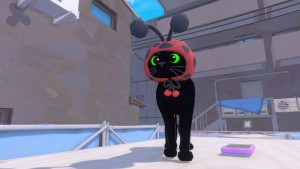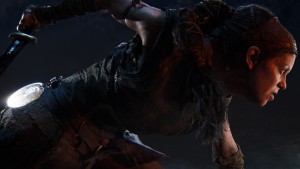Please support Game Informer. Print magazine subscriptions are less than $2 per issue
Bill Kunkel, Game Journalist: A Memorial

Bill Kunkel died in September from a heart attack at the age of 61. You might not know who he is, but he’s one of the reasons you’re reading Game Informer today. Starting in 1980 with a column in Video magazine, Kunkel and his partner Arnie Katz began the very first column that reviewed video games. In 1981, Kunkel and Katz (along with Joyce Worley) founded Electronic Games, the first video game consumer magazine. Every gaming magazine and website you read today – including Game Informer – descends from the work the trio did in Electronic Games.
In the years following Electronic Games, Bill Kunkel had a successful and wildly varied career, but always stayed close to his first love, games. As a journalist, he wrote a popular column called “The Game Doctor” that appeared in EGM and Computer Gaming World. He also wrote for The New York Times, served as the editor in chief of Tips & Tricks until the publication folded in 2007, and wrote strategy guides for Prima. He also published an entertaining, gonzo memoir of his wild life and times, Confessions of the Game Doctor.
Kunkel branched out from writing later in life, working as a game designer on titles like Batman Returns, Bart’s Nightmare, and The Omicron Conspiracy, which led to a job teaching game design at the University of Las Vegas. For many years, he worked as an editor at Running With Scissors, consulting and writing PR and editorial copy for the controversial Postal franchise. A lifelong fan of professional wrestling, he also wrote for Pro Wrestling Torch and Wrestling Perspective.
To help honor his career, we contacted some people in the industry that were friends, colleagues, or admirers of his work over the years. Here are their tributes to Bill Kunkel. Rest well, Game Doctor.
[This memorial originally appeared in issue #223 of Game Informer magazine.]
Arnie Katz
Co-founder of Electronic Games
Bill Kunkel wasn’t just my partner in Katz Kunkel Worley, Inc., for nearly 25 years. He was my closest friend for more than three decades. With a bow of respect to others who have fashioned fine careers in writing and editing, Bill Kunkel was my finest student. We encountered each other in the Science Fiction Fandom. We traded fanzines and met again at the 1967 World SF Convention. Well, actually, Joyce met Bill and me, but Bill and I didn’t see each other there.
Though Bill faded from Fandom after that convention, he stayed in contact enough to find out that Joyce and I got married in April of 1971. About a month later, Bill and his girlfriend Charlene Komar called and then came over for a visit.
The couples clicked immediately. We started visiting regularly and they joined the informal sci-fi club Joyce and I hosted. Bill and Charlene co-edited a fanzine called Rats! and Bill also wrote an entertaining personal zine, Dead Flowers, named for a Rolling Stones tune. We spent many Saturdays running off our fanzines.
We bonded during those long Saturday afternoons of printing and collating. Yet the single incident that made Bill, Joyce, and I lifelong close friends had nothing to do with science fiction or even Fandom. In light of our subsequent history, it couldn’t have been more appropriate.
Bill and Charlene told us they were going to Chicago to visit relatives. We met them in midtown Manhattan, where we ate a meal together at Nathan’s in Times Square. Bill and Charlene headed for the Port Authority Bus Terminal, located along a particularly grungy slice of 8th Avenue between 42nd and 43rd Streets. We walked down to the corner with them. They’d hardly disappeared from sight when Joyce and I slunk off to our guilty secret. We had become regular patrons of a lurid den of iniquity heralded over its entrance by a garish slash of neon that read “Fascination.”
It was the kind of place Joyce’s mom had warned her against – a Times Square amusement arcade. During the lull between the heyday of pinball and the debut of electronic coin-ops, arcades had sunk to a bottom-of-the-barrel reputation, seedy at best, downright dangerous at worst.
We played mostly target-shooters and skee ball until first Astro Chase and then Pong seized prime locations in Fascination. It didn’t take long for Joyce and me to take over the arcade’s only Pong machine. Armed with as many quarters as we could afford, we became immersed in a fierce but friendly competition for digital tennis supremacy.
A noise behind us made me take a quick sidelong glance between volleys. It was Bill and Charlene! They’d run into a problem with the bus schedule, decided the visit would be ridiculously short by the time they caught a bus for Chicago, and went to go indulge their secret vice.
The two couples, already united in Fandom, discovered that we were also comrades in the still-embryonic brotherhood of electronic gamers. And that, fellow gamers, was a feeling that never died.
Greg Kasavin
Former GameSpot editor-in-chief, writer/designer at Supergiant Games
I never met Bill Kunkel, but his name meant a lot to me for years. It’s the first name I recognized while reading gaming magazines as a kid. These days it seems game players are still fighting for the legitimacy of the medium. But to me the legitimacy of the medium was never really in question, because for as long as I can remember there were guys like Bill, who treated the subject with care and their readership with respect. I no longer remember too many specifics from the publications he wrote for, but I definitely remember how excited I felt to get those issues in the mail. I now make games instead of write about them, though I was part of what felt like an entire generation of game writers inspired by Bill’s work. My condolences to his family and friends, and may he rest in peace.
Vince Desi
Founder and CEO, Running With Scissors
Bill and I met around 1980 and we instantly hit it off. I had just started working as a consultant for Atari and Bill had started Electronic Games magazine. Right away, I knew he was a special person. Bill was very professional and an excellent writer. He was honest and genuine. Bill was a creative person, everything from being a writer, a musician, and an artist. But he loved writing and he loved video games. He loved wrestling and he loved mob stories. He was a different kind of guy – very much his own person. He’s done everything from writing to designing games.
He was independent. Bill would tell me if something sucked about Running With Scissors or Postal. If I had an idea, Bill would just say, “Are you f------ out of your mind?” When he was in Las Vegas he was teaching classes about video game design, and he always had time for everyone. I can’t tell you how much richer he made me as a person and how much he influenced my life. Most people in this industry, you send them an email and you’re lucky if you get a response. Bill would reach out to anyone from a kid in 8th grade to someone that’s thinking of going to Full Sail. That’s an amazing, rare character. How many people do you know in this business that will help you without wanting something from you?
He was a renaissance man in the electronic games industry. I know Bill, if he’s listening now, he’s laughing and saying, “Vince, give it a break.”

Steven L. Kent
Game journalist, author of The Ultimate History of Videogames and The Clone Republic
In 1993, I had written two game reviews for The Seattle Times and was working for the public relations firm of Morse-McFadden when [Electronic Games co-founder] Joyce Worley called for a product sample. I talked her into letting me write a review and the next thing you know, I am a protégé of Katz, Kunkel, and Worley.
What you read in a column by the Game Doctor was what you got when you spoke with Bill. He told you what he thought and he didn’t hold back, mince words, or leave much to your imagination. As journalists go, Arnie Katz was the Tim Russert of the group – the fair-minded diplomat who gave everyone the same treatment. Joyce Worley was more of the Tom Brokaw bent. Bill was Howard Cosell incarnate. There was color in everything he said and wrote. It made him the most quotable of game journalism’s founding trinity. I think it also made him the most beloved by gamers. Arnie and Joyce had parental voices, Bill was your sometimes-nasty bigger brother who said cool things and challenged authority.
I remember when GameWorks began opening its overpriced arcades. I mentioned to Bill how much I liked them. He asked me, “You ever see Pulp Fiction? GameWorks is like the milkshake in Pulp Fiction. It’s a five-dollar milkshake. I don’t know whether it’s worth five dollars, but it’s pretty f------ good.”
Dan Amrich
Former writer at Official Xbox Magazine, GamesRadar, and GamePro, Social Media Manager at Activision
When I was growing up, there was no magazine I loved more than Electronic Games. It covered everything from arcades and pinballs to home consoles and handheld LED games. I was 10 when it came out; I read each issue literally dozens of times. I no longer have any issues because they all fell apart from overuse.
Other magazines mentioned video games, and I read stuff like Family Computing too, but nothing embraced the escapist joy of gaming the way EG did. The magazine treated games with respect; to me, that was Bill Kunkel’s lasting influence. He covered fun in a serious way – he knew this stuff mattered on an emotional level but never approached things cynically. At a time when you generally went to a toy store to buy games, Electronic Games did not treat games as toys and it did not treat its readers as children. For me, that set the standard.
John Davison
CBS Interactive vice president of programming
When I moved from the U.K. in 1998 to take the reins of Electronic Gaming Monthly, I didn’t really know anyone in the U.S. games media business. I’d not really grown up with the names that many of you know and love here. I knew of Bill by reputation, of course, but I’d never actually met him.
My enduring memory of Bill was that he was one of the very first people to reach out and say hello once he’d heard there was someone new at EGM. While some folks were clearly wary of yet another *** Brit invading the American market and interfering with a beloved games magazine, Bill was friendly and welcoming. He picked up the phone, said hello, and wished me luck. Very classy. I’m sad that we never got to know each other better, but I’ll always remember that call.
Harold Goldberg
Game journalist, author of All Your Base Are Belong To Us: How Fifty Years of Videogames Conquered Pop Culture
It’s often said that Bill Kunkel (along with Arnie Katz) created video game journalism. You don’t create something that was already there, and journalism was already there. But Katz and Kunkel, with their thoughtful (and sometimes enjoyably peculiar) riffs on journalism, proved there was a market for writing about games. They turned their dream into a profitable business, one than not only cared about making money, but one that cared about writers as well. That kind of embracing attitude is too often lost on game journalism entrepreneurs today.
Kunkel, with his hard-partying persona and cranky musings, was a true creative spirit, as independent-minded as the rant-oriented Lester Bangs in music journalism, if not as wonderfully wild with his words.
Kunkel’s incisive words often rang true with singular passion and been-there-saw-that knowledge, whether in a foreword to someone else’s tome or in his own 200-page Confessions of the Game Doctor. He was one of the few people who excelled at anything to which he set his mind. He moved into designing games. He wrote stories for comic books. He even was a wrestling announcer. That’s either initiative-filled hustle for making a living with one’s craft or the sign of a real renaissance man. I prefer to think it’s the latter…definitely the latter.










